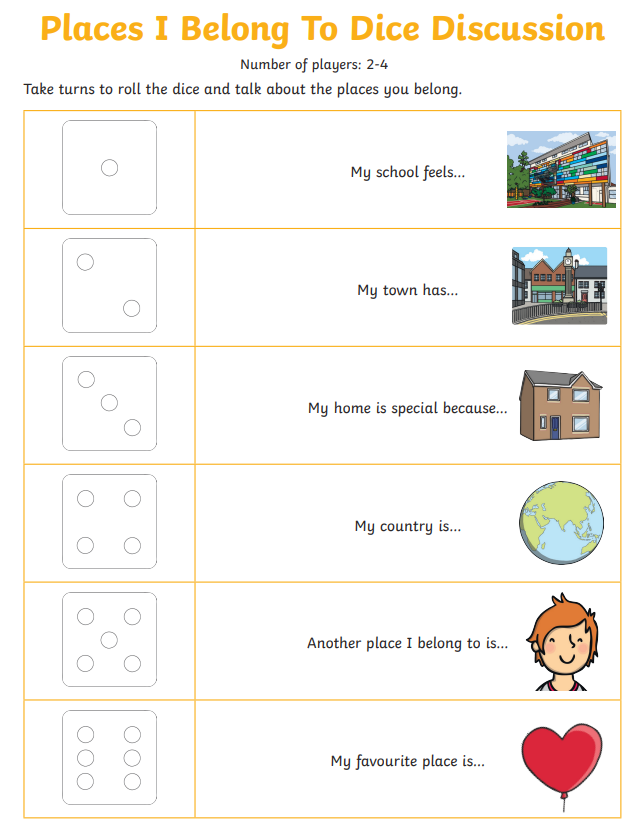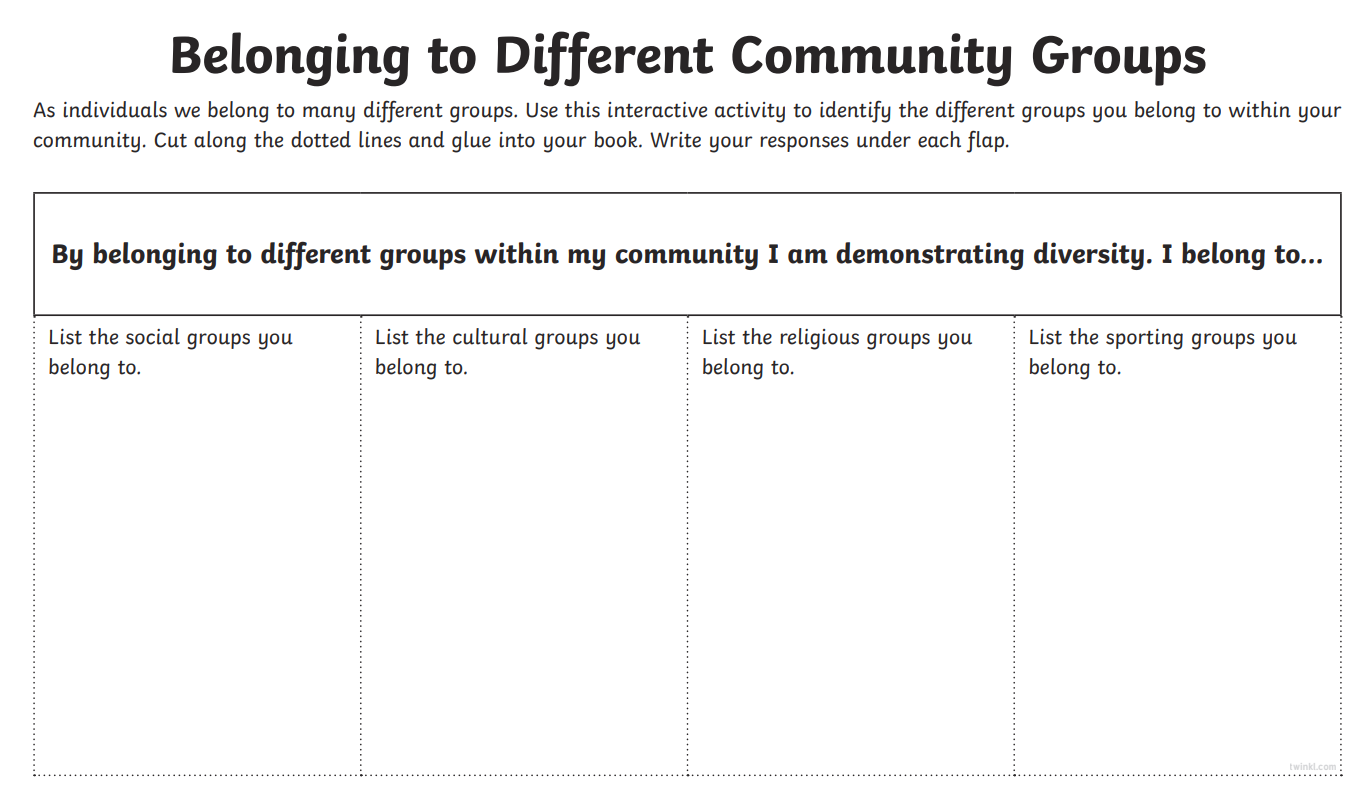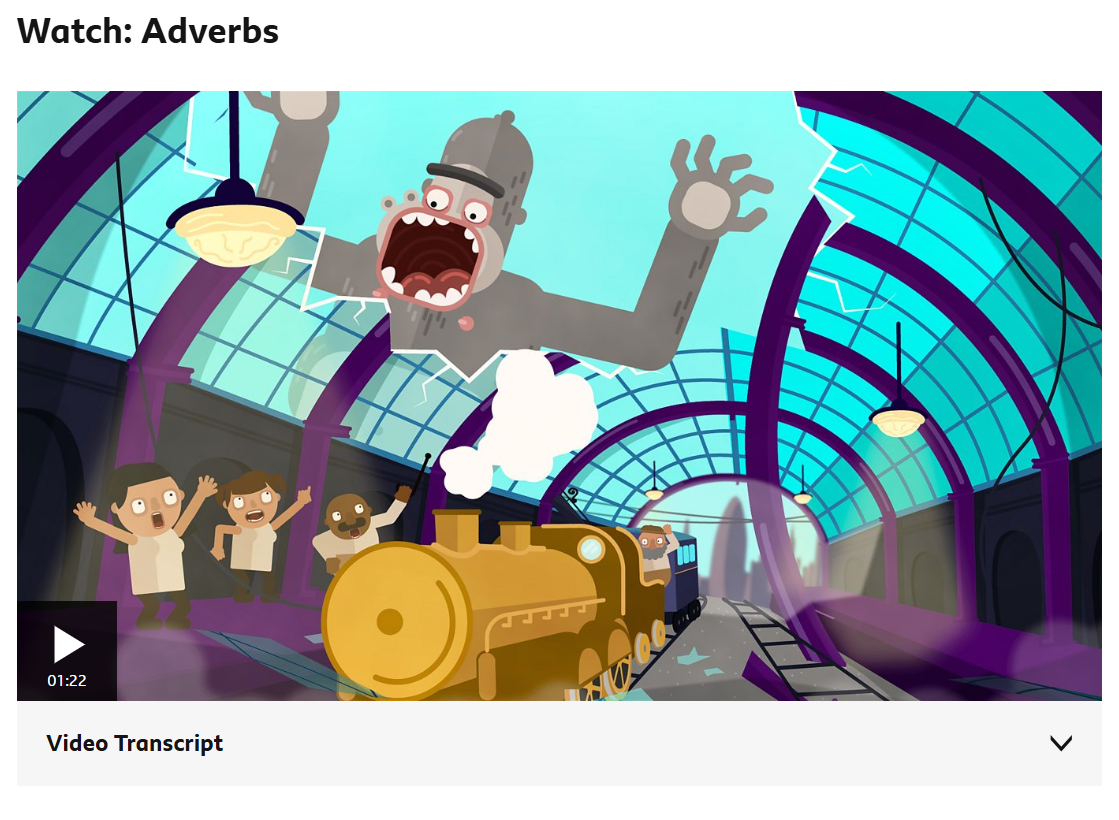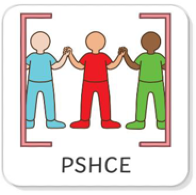Wednesday
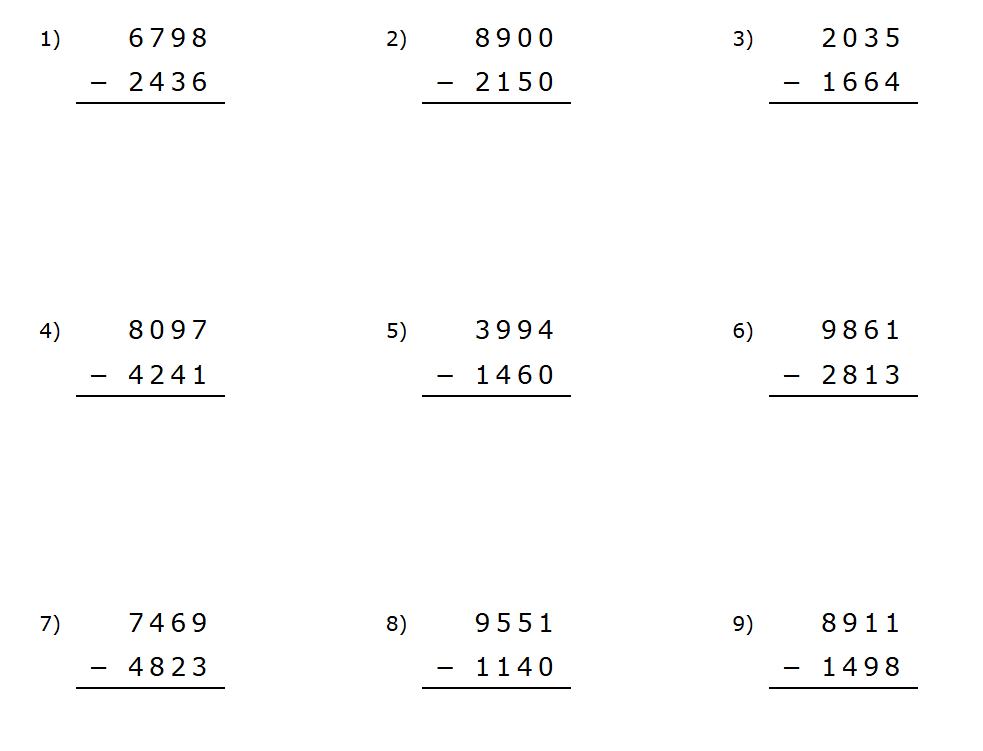
RIC
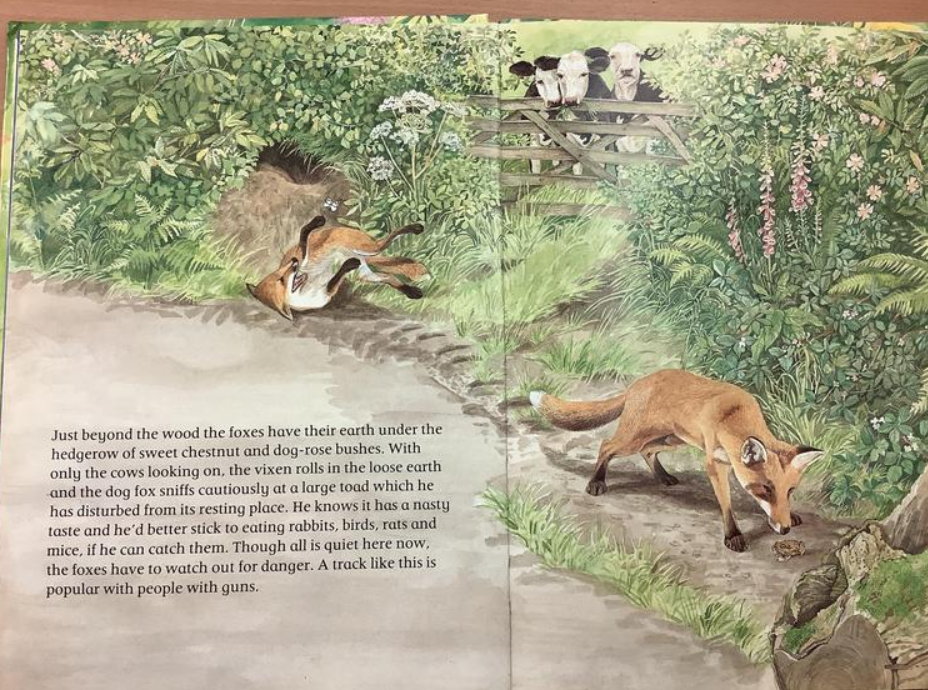
R: Where do the foxes live?
I: Why do the foxes need to look out for danger?
C: Why is the fox called a vixen?
Wednesday 26th February 2025
LC: To read, analyse and record information from a range of non-fiction text- Polar Bears.
Teacher model: Read through the non-fiction text and retrieve key information about reindeers.
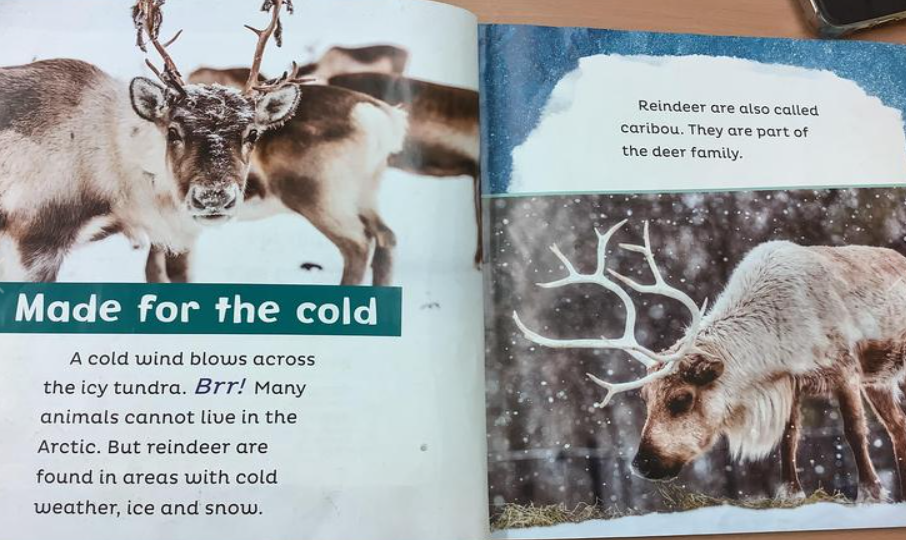
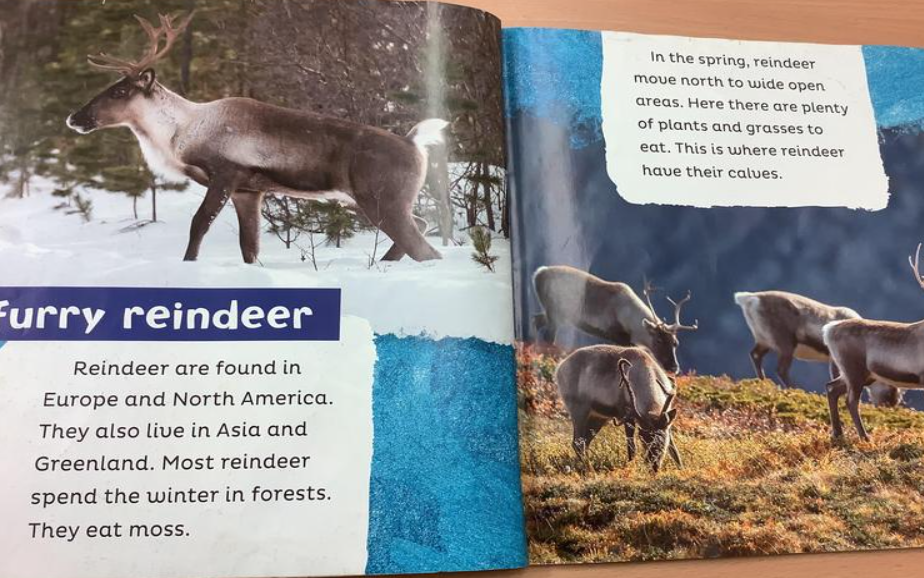
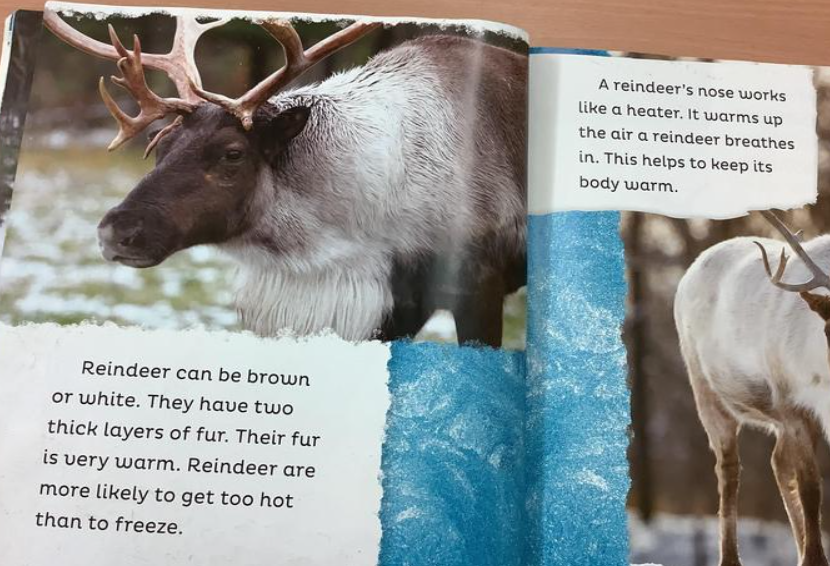
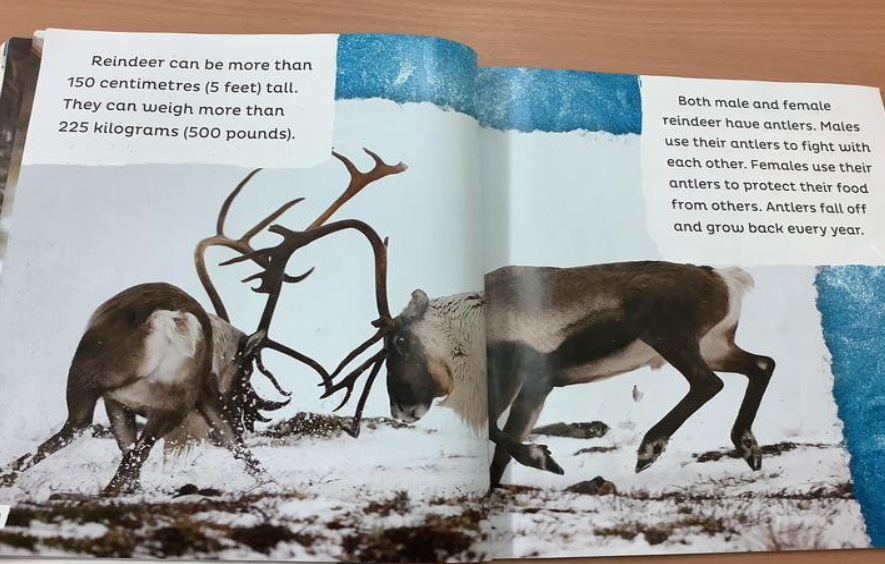
Your turn: Read through the non-fiction text and retrieve key information about polar bears.
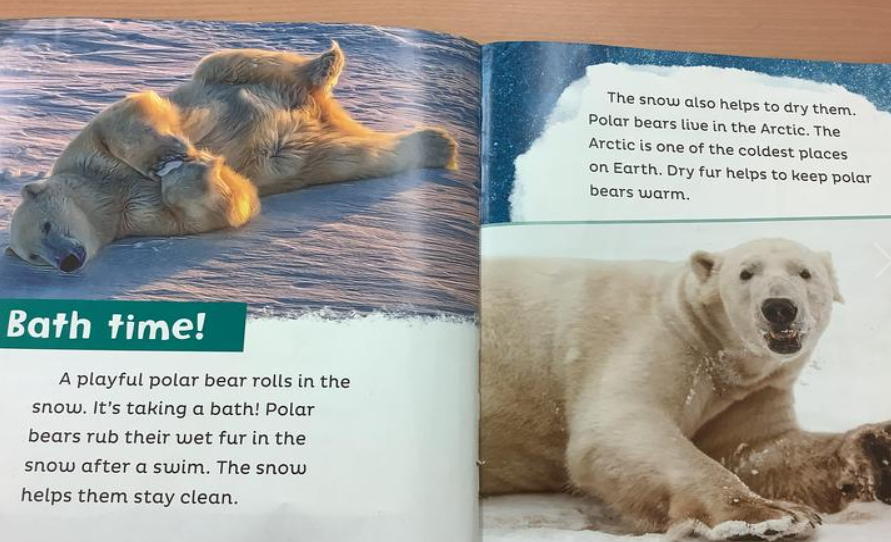
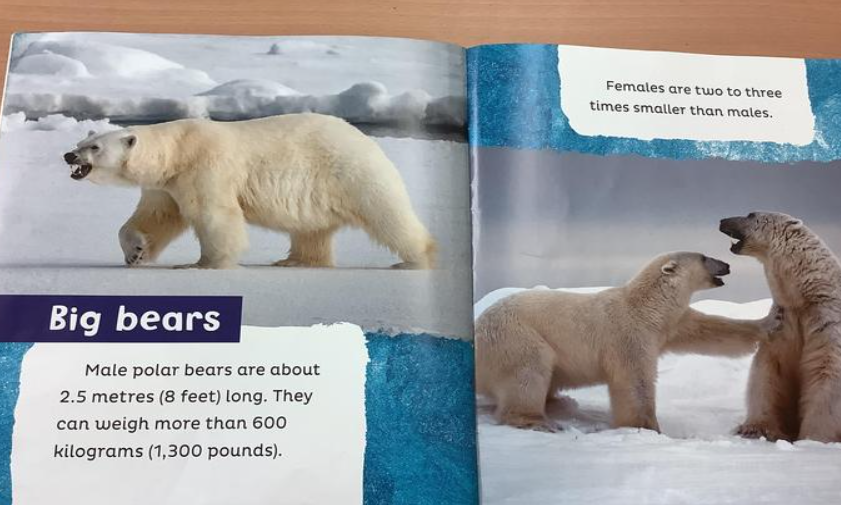
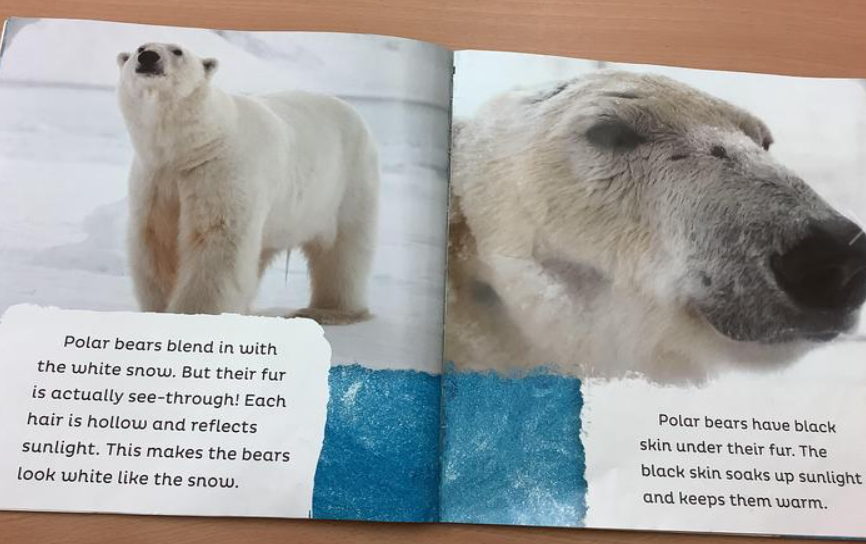

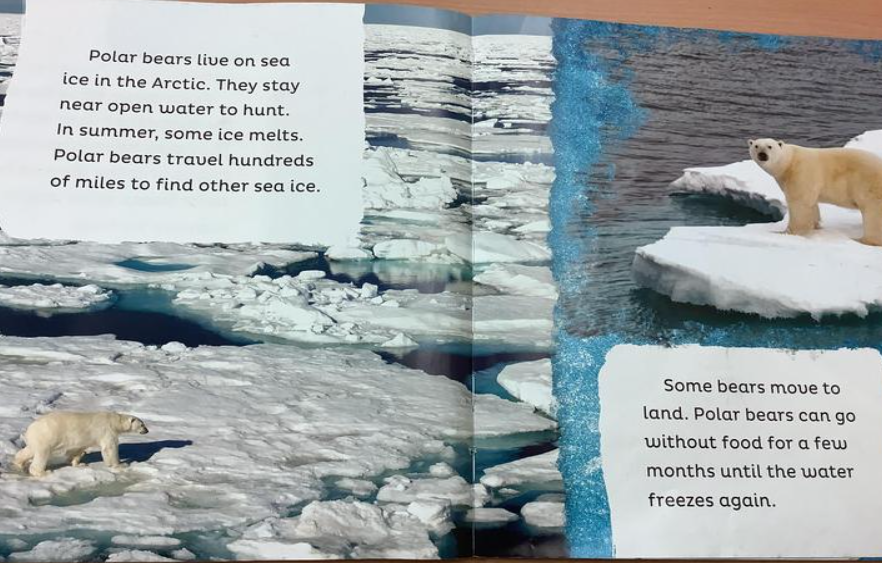
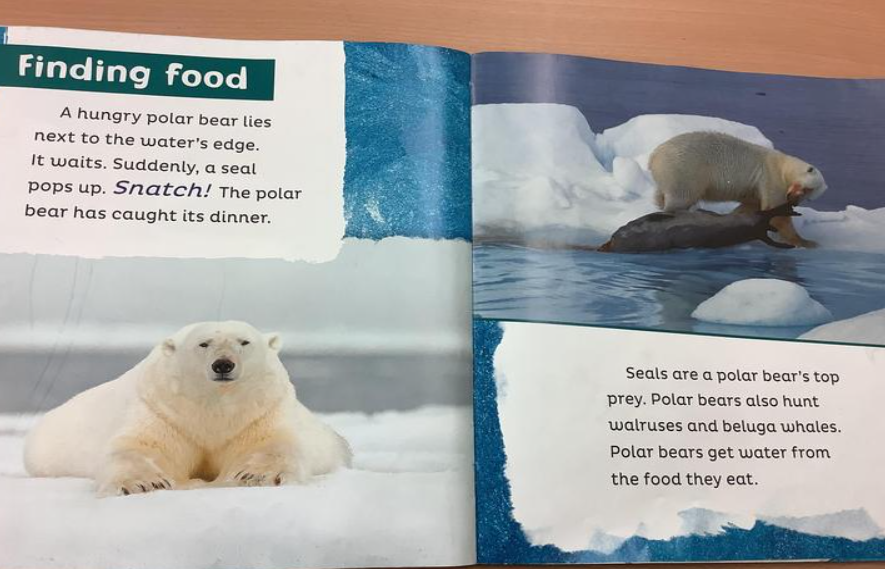
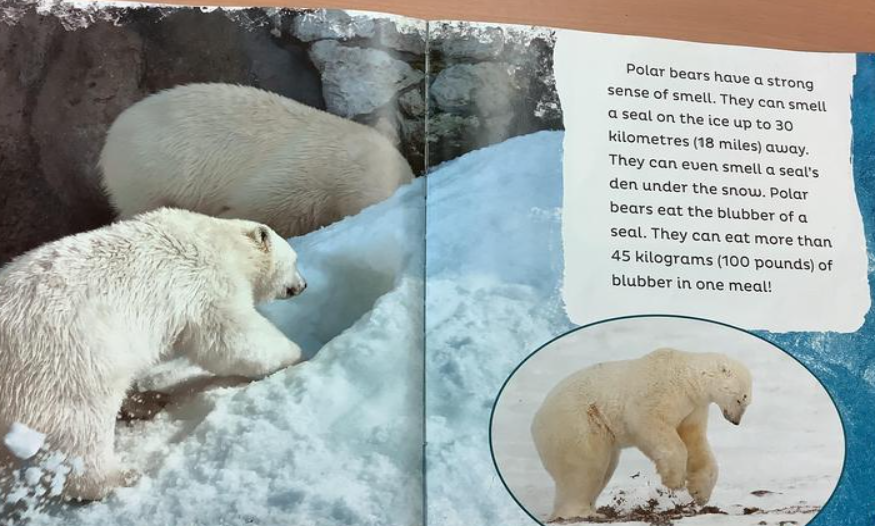

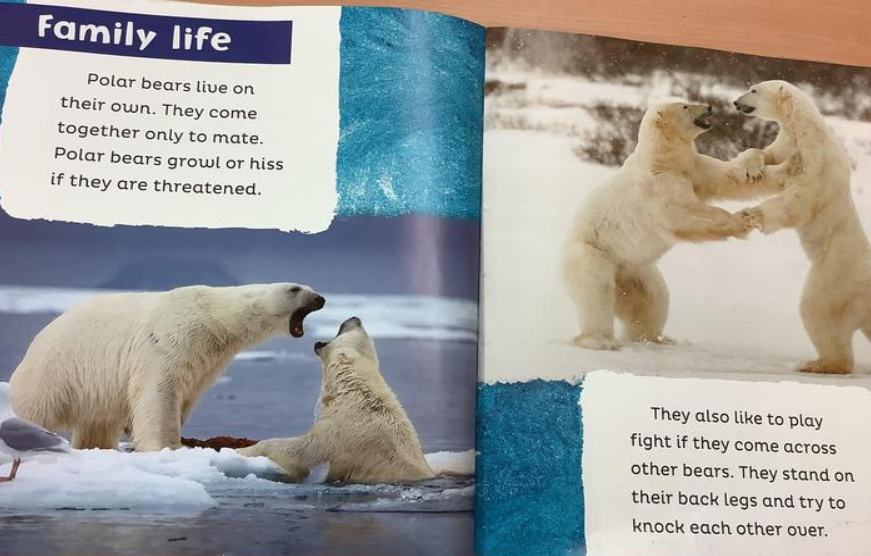
Grammar
Identify, Collect and Classify: Adverbs
Highlight the adverbs, where are they in the sentence?
Collect sentences which use adverb for the learning wall.
Cautiously, April approached the magnificent beast.
Wednesday 26th February 2025
LC: To anaylse and discuss a theme in a narrative.
what themes can we see in the story?
We will now be completing a semantic map about the theme of loneliness.
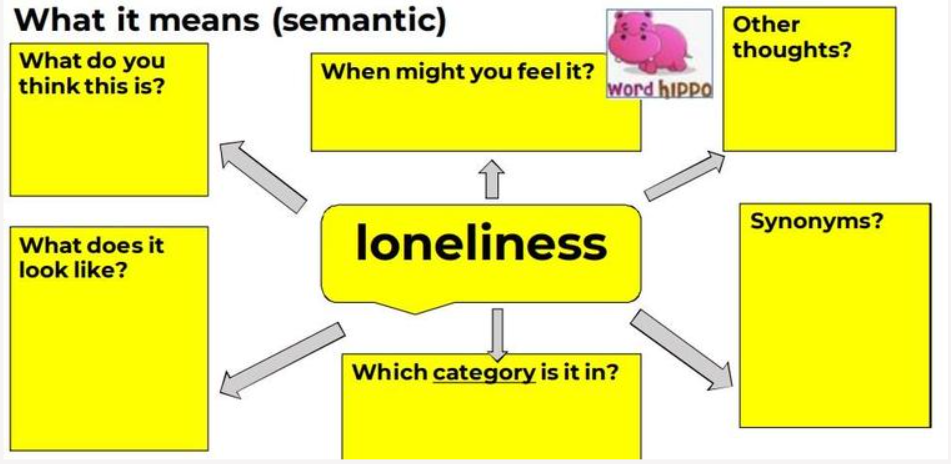
What themes can we infer from the setting? We will be using the description of the setting in our books as well as the picture below.
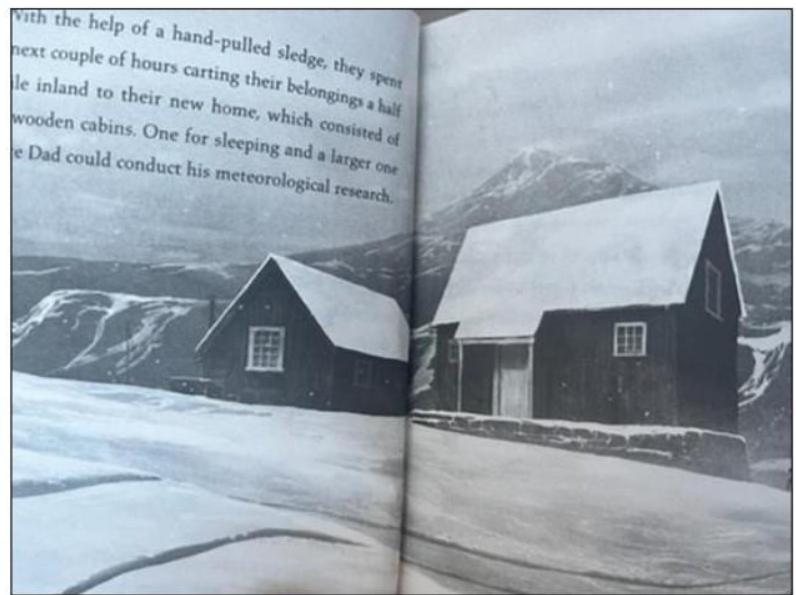
What themes can we infer from the character of April? We will be finding extracts that support this from the text.

Independent task: In your books write about how the theme of loneliness is felt by April. You must use your text to help you.
26.02.25
LC- To convert hours to minutes.
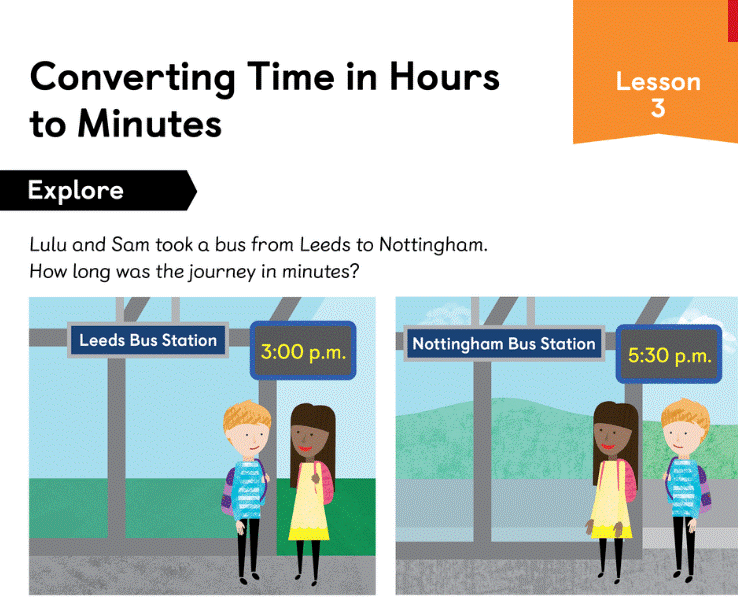
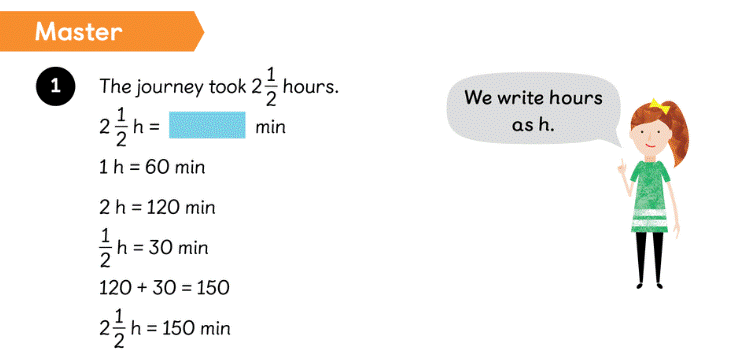
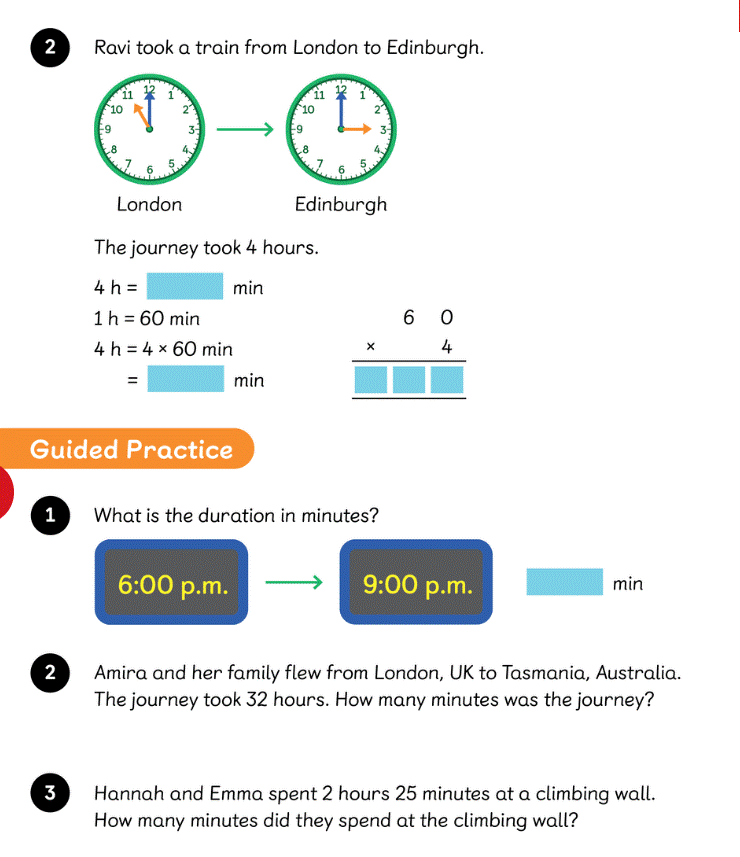
Complete worksheet 3 pages 207 and 208.
Wednesday 26th February 2025
LC: To understand the different groups that make up our community.
There's much more to a community than just being in the same place these days, but what is community?
Be A Part Of Something Bigger Than Yourself
We all want to feel like we belong. Like we’re an important part of something. And yet, how often do we really get to feel that way? Especially in the modern day, where it’s easy to fall into a trap of feeling lonely, isolated, and like you’re all by yourself.
Despite this, though, we often hear people talking about concepts like togetherness, and particularly the word “community” gets thrown around a lot. But what is community? Let’s find out together, explore what the word means, and take a look at some of the different communities you may actually be a member of already without you knowing.
What Does Community Mean?
What is community? To put it simply, a community is a group of people. Any size group of people will do, from a handful to hundreds and hundreds, even thousands and millions. But what’s more important about these people is what’s brought them together, and put them into this group. What do they have in common?
Because that’s the thing that turns a bunch of people from a disparate group into a community. They will all have something in common. But what?
For some communities, the thing they have in common is that they all live in the same place. In fact, when we think of the word community itself, the thing that springs to mind is a village or a town. A small group of people who all live in the same small area, near to one another. Neighbours, of a sort.
But community can cover many different kinds of groups than just people who live near each other. For example, several people who are members of the same pottery club might be considered to be a community. There might not be as many of them as there are in a small town, but the definition still stands. They’re part of a group with a mutual interest, so they’re part of a community.
Likewise, you could look at groups of people who are all members of the same religion to be a community. Communities like these often spring up around a focal point, like a synagogue, temple, or church.
Such communities are often based around something that forms a key facet of a person's identity. Other examples of which might include groups that are primarily for people who identify as a specific sexuality or gender identity, people who have a common job type like police or fire services, or people who have reached old age.
With the rise of online services, video games, and social media platforms, the definition of what is a community and what it means to be in one have changed slightly. Because the internet has allowed people to connect from all over the world in order to argue about science fiction programs and laugh at pictures of cats, communities now often are not limited by geographical proximity.
However, despite that, the terms of admission are now somewhat different. In the past, you could become a member of a pottery society just by attending a meeting of their group. Now, you no longer have to attend the group in a physical sense, you can join an online version.
Now, you’re a part of the community, all of you throwing pots together, but doing it in your own homes and sharing videos of your efforts with each other. Now, though, you actually have to make a conscious decision to join this community. You have to be listed, and sometimes ratified and approved by someone to join it. There will also, invariably, be a list of people who belong to that community.
This may not be new in a historical context. Documents like parish registers and the census have been recording people’s geographical membership of a community for hundreds of years. But having a membership list for more niche interest groups, particularly online, is a much more recent phenomenon.
So, now we know what a community is: It’s a group of people who all share something in common, like an interest, religion, hobby, or where they live.
